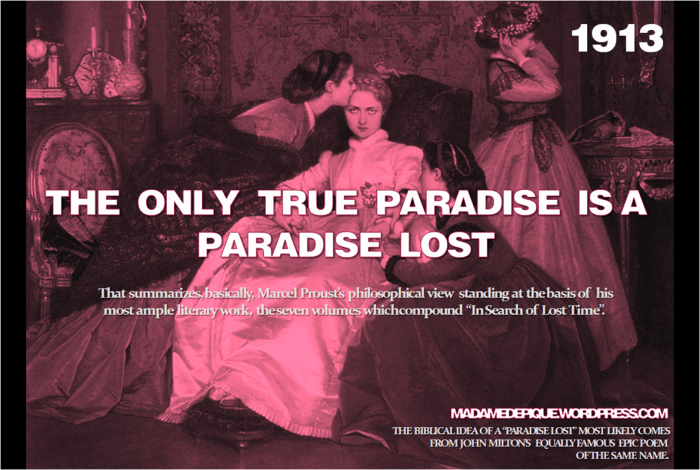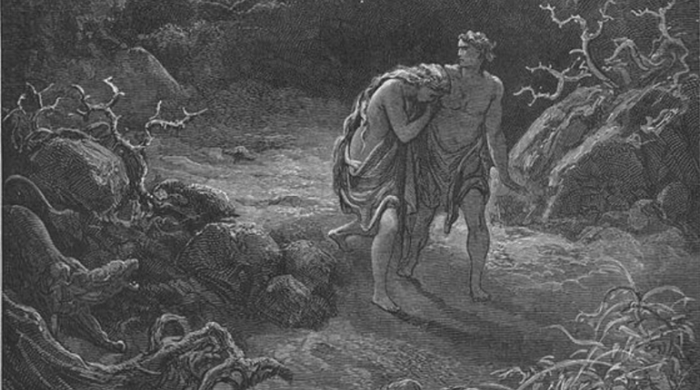Quotes about Satan in Paradise Lost offer profound insights into the nature of evil, the struggle between good and darkness, and the complexities of human nature. This literary masterpiece, penned by John Milton, presents a captivating portrayal of Satan, a fallen angel whose pride and ambition drive him to challenge God’s authority.
Milton’s portrayal of Satan is not simply that of a one-dimensional villain but rather a complex and multifaceted character. Through his words and actions, Satan embodies the allure of rebellion, the destructive power of pride, and the consequences of defying divine order.
Satan’s Character and Motivation: Quotes About Satan In Paradise Lost

Satan, the central antagonist of Milton’s Paradise Lost, is a complex and multifaceted character. His actions are driven by a combination of pride, ambition, and a desire for revenge. Satan’s pride stems from his belief that he is superior to God and that he deserves to be worshipped as an equal.
This pride leads him to rebel against God and to attempt to usurp his throne.
Satan’s ambition is also a major factor in his actions. He desires to be the ruler of Hell and to have dominion over all creation. This ambition leads him to deceive Adam and Eve and to cause their fall from grace.
Satan’s desire for revenge is directed at God, whom he blames for his own downfall. He seeks to destroy God’s creation and to bring about the ruin of mankind.
Satan’s Free Will
Satan’s rebellion is often seen as an exercise of his free will. He is not forced to rebel against God, but he chooses to do so because he believes that he has the right to be worshipped as an equal.
Satan’s free will is a gift from God, and it is a fundamental part of his nature. However, Satan’s use of his free will is ultimately destructive, as it leads him to sin and to eternal punishment.
Satan’s Relationship with God
Satan, initially known as Lucifer, was a high-ranking angel in God’s heavenly court. However, his relationship with God deteriorated due to his pride and ambition.
Satan’s rebellion against God stemmed from his desire to be equal to God and to challenge His authority. This act of defiance had significant theological implications, as it questioned the sovereignty and omnipotence of God.
Satan’s Rebellion
- Satan rallied other angels to join his rebellion, challenging God’s rule.
- He claimed that God was unjust and that he could establish a better kingdom.
- Satan’s rebellion resulted in a war in Heaven, with Michael and his angels ultimately defeating Satan and his followers.
Consequences of Satan’s Rebellion
- Satan and his fallen angels were cast out of Heaven and into Hell.
- Their rebellion introduced sin and evil into the world, corrupting God’s creation.
- Satan became the tempter of mankind, leading them astray from God’s path.
Satan’s Influence on Others

In Paradise Lost, Satan’s influence on other characters is profound and far-reaching. Through his cunning and deceit, he manipulates and corrupts individuals, leading them astray and ultimately contributing to their downfall.
Satan’s temptations are a powerful tool in his arsenal. He uses promises of knowledge, power, and glory to entice characters like Eve and Adam, preying on their desires and vulnerabilities. By offering them forbidden fruit, he seduces them into disobeying God’s commands and sets them on a path of sin and suffering.
Satan’s Deceptions, Quotes about satan in paradise lost
Satan’s deceptions are equally potent. He disguises himself as an angel of light to gain the trust of others, manipulating their perceptions and leading them astray. Through lies and half-truths, he sows doubt and confusion, eroding their faith and trust in God.
Consequences of Satan’s Actions
The consequences of Satan’s influence are devastating for the other characters. Eve’s temptation leads to the fall of humanity, bringing sin, suffering, and death into the world. Adam’s subsequent disobedience further compounds their guilt and shame, resulting in their expulsion from Paradise.
Satan’s influence extends beyond the Garden of Eden. He tempts Christ in the wilderness, seeking to sway him from his divine mission. However, Christ’s unwavering faith and resistance to Satan’s wiles ultimately lead to his triumph over temptation and the redemption of humanity.
Satan’s Symbolism and Significance

In John Milton’s epic poem Paradise Lost, Satan is a complex and multifaceted character who embodies both the forces of evil and the human condition. His symbolic significance extends far beyond his role as the antagonist, representing the eternal struggle between good and evil, the temptations of power and ambition, and the complexities of human nature.
Satan as the Embodiment of Evil and Chaos
Satan’s rebellion against God represents the primal forces of chaos and disorder. His desire to overthrow the divine order reflects the destructive nature of evil, which seeks to undermine harmony and create discord. Satan’s association with darkness, fire, and the underworld further reinforces his symbolic role as the embodiment of evil and chaos.
Satan as a Reflection of the Human Condition
Despite his monstrous nature, Satan also embodies the complexities of human nature. His pride, ambition, and thirst for power are all too familiar human weaknesses. His temptation of Eve in the Garden of Eden highlights the susceptibility of humans to sin and the allure of forbidden knowledge.
In this sense, Satan serves as a cautionary tale about the dangers of unchecked ambition and the consequences of succumbing to temptation.
Quick FAQs
What is the significance of Satan’s character in Paradise Lost?
Satan is a complex and multifaceted character who embodies the allure of rebellion, the destructive power of pride, and the consequences of defying divine order.
How does Milton portray the relationship between Satan and God?
Milton depicts Satan’s initial relationship with God as one of harmony, but this relationship deteriorates as Satan’s pride and ambition lead him to challenge God’s authority.
What are the consequences of Satan’s actions in Paradise Lost?
Satan’s rebellion leads to the fall of humanity, the introduction of sin and suffering into the world, and the ongoing struggle between good and evil.
